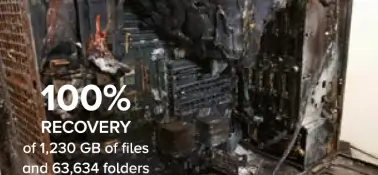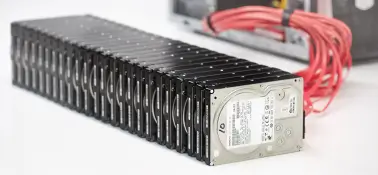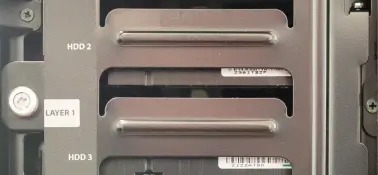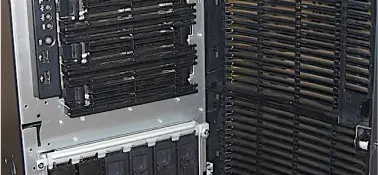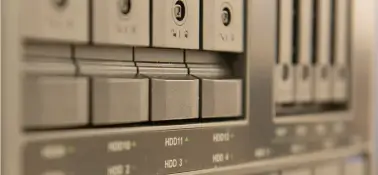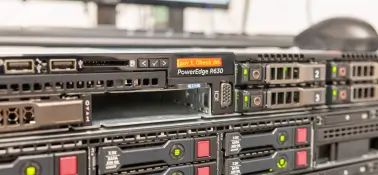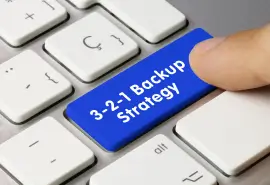RAID Data Recovery for Every Level and Failure Type
We are the RAID data recovery specialists with advanced tools and techniques and an industry-leading 96% success rate. Our certified data recovery service has resolved thousands of cases involving common RAID levels and complex hybrid arrays. This knowledge allows us to develop custom solutions and restore files that other companies cannot, including data loss from ransomware. Trust the team with expertise across all RAID configurations and experience with NAS and SAN systems. A failed server or virtual machine does not mean permanent data loss.
We Helped Thousands Get Their Lost Data Back
With over 6,738 satisfied customers and counting, we are proud to provide the service and results that exceed your expectations. Hear what they have to say.
View AllOur Process
Free Consultation
Shut down the system and call us. We are available 24/7 for a free consultation.
Free Diagnostics
Our experts will diagnose the disks from your array inside a certified lab.
Review and Decide
Review the results and decide how to proceed. Enjoy peace of mind with our No Data, No Recovery Fee guarantee.
Recovery and Return
Our engineers retrieve your data. You receive it through secure methods after payment.
Reviews From Verified Customers
Saved my a**
I’ve been working on a large project that had several layered Photoshop files that had taken me weeks to work on. I was moving at a quick pace because it was a new drive. It was super fast, and I was mistakenly not backing up. Unfortunately, the raid drive failed on me and regular desktop recovery techniques did not bring back the files completely, nor did it keep links between the design files an... Read More
Secure Data Saved the Day!
Working with Eric Dvorin from Secure Data Recovery was an absolute pleasure. When our production server experienced multiple disk failures, Secure Data responded quickly and professionally. Before we even finished our phone call discussing the situation, the return label for our damaged disks was already in my inbox, making the process smooth and efficient.
Their communication was outst... Read More
Awesome Job!
I had two disks an employee gave me that needed to be recovered, so I sent them to Scott at SecureData. He determined that they were in a RAID 5, so I was missing a disk. I was able to locate the missing disk, and Scott recovered all the data needed. Thank you very much, and I would definitely do business with this company again.
Thanks,
Tony
Ecstatic with the recovery
Friendly, expeditious and a successful recovery of ALL my data on an old(!) NAS raid drive.
The best thing I can say is “If I ever need this type of service in the future I will be using them!”
Saved Years of music files and pics!
Thank you all for recovering my crashed 4TB drive that contained over 20 years of music files I created throughout the years on my mac. The replaced HD boots up like nothing had ever happened!
Photographer
Secure Data did a great job of digging out data from several hard dives that had been corrupted. Great communication from start to finish. I would recommend them highly.
Frequently Asked Questions
-
How much do RAID services cost?
Costs vary based on the case. It depends on factors like RAID level, number of disks, operating system, failure mode, and amount of data. As part of our service, we offer free diagnostics and guaranteed results. You get your data back, or pay nothing.
-
Does my RAID level affect the process?
Yes. While our experts can retrieve data from any RAID, non-standard systems are more complex and often require more effort.
-
Does my operating system impact recovery?
Yes. Your operating system (and its file system) impacts the process. Arrays can use Linux, Unix, Solaris, Windows, and macOS. We maintain custom tools and techniques for each of these systems.
-
Can I use data recovery software to recover files from my RAID?
You can, but we do not recommend it. Software was not designed for complex RAID systems and could corrupt or overwrite more files. Running a failing RAID increases the risk of permanent damage and data loss.
-
Can you remotely recover data from my RAID?
We have several service options and can perform remote recoveries in some cases. However, cases with damaged disks require attention at one of our labs.
-
What can I do to ensure the fastest recovery for my case?
Take the proper steps to limit damage to the RAID and contact us. We have 24/7 service if required and an average turnaround of 48 hours for these cases.
-
What is a Class 10 ISO 4 cleanroom?
A Class 10 ISO 4 cleanroom is a controlled lab that filters harmful particles from the air. Working on the RAID inside a cleanroom reduces the risk of further damage and data loss.







